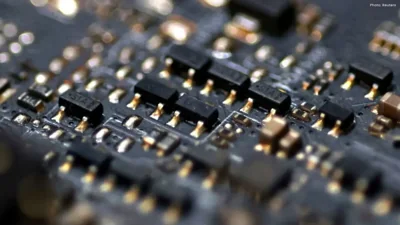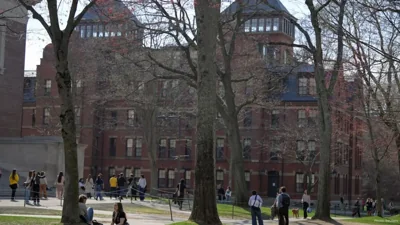
Post by : Saif Nasser
A new scientific study has challenged one of the most common beliefs about health — that skipping breakfast harms the brain. According to researchers, not eating breakfast does not affect brain performance, memory, or focus in adults. This finding has surprised many who have long believed that breakfast is the most important meal of the day.
The study, published in the journal Psychological Bulletin, examined results from 63 different studies involving more than 3,400 people. Researchers Christoph Bamberg and David Moreau reviewed years of data comparing how people performed on brain and memory tests after eating and after fasting. The results showed almost no difference between the two groups. On average, those who had breakfast performed only 0.2 units better than those who did not eat. This number is so small that it is considered insignificant in scientific terms.
The scientists explained that the human brain has a natural backup system for energy. Normally, the brain uses glucose — sugar from food — to function. But when a person skips a meal, the body starts using stored fat to make ketones, another type of fuel. These ketones keep the brain active and sharp even when no food is eaten for several hours.
The researchers said that this process has been part of human biology for thousands of years. In ancient times, people often went long hours without food while hunting or gathering, yet they still had to stay alert and think clearly to survive. The study shows that short periods of fasting, such as skipping breakfast, do not harm the brain or slow mental activity.
However, the study also made an important point: the results apply mainly to adults, not children. Adults have fully developed brains and more stable energy systems. Their bodies can easily adjust and use stored fat when they don’t eat for a few hours. In contrast, children are still growing and developing. Their brains and bodies need a steady supply of nutrients throughout the day. Therefore, skipping breakfast is not recommended for children, as it can affect their learning and energy levels.
Experts added that skipping breakfast does not mean people should avoid eating altogether. The key is balance. Adults can choose to delay their first meal of the day if they prefer, but they should still eat enough healthy food during the day to meet their body’s energy needs. Foods like fruits, vegetables, nuts, and whole grains help the body get the right nutrients, even if breakfast is skipped.
Medical professionals have also linked these findings to the growing popularity of intermittent fasting — a diet trend where people eat only during specific hours of the day. The study supports the idea that short-term fasting, such as not eating for 8, 12, or even 16 hours, is safe for most adults and does not harm brain function. It also shows that the body has efficient ways to keep energy levels stable even without constant eating.
However, scientists warn that people with certain medical conditions, such as diabetes or low blood sugar, should be careful. They should consult doctors before skipping meals, as their bodies may not manage long fasting periods safely.
This new research could lead to changes in how people think about breakfast and nutrition. For decades, nutritionists have encouraged everyone to eat breakfast daily, suggesting that it boosts concentration, helps maintain a healthy weight, and gives energy for the day. But this study shows that while breakfast is beneficial for some, it is not a requirement for brain function, at least for healthy adults.
Many people skip breakfast for different reasons — busy schedules, personal preference, or fasting habits. Now, they may feel reassured knowing that doing so is not harmful to their focus or memory. Still, health experts continue to remind people that the quality of food matters more than the time it is eaten.
In conclusion, the new findings suggest that skipping breakfast does not weaken the brain, reduce focus, or slow thinking in adults. The body has natural ways to supply energy to the brain, even without food for several hours. While adults can safely skip breakfast if they choose, children and teenagers should continue to eat regular morning meals to support their growth and learning.










Investigation Underway After Air India Airbus A350 Engine Damage in Delhi
An Air India A350 sustained engine damage from a cargo container during taxiing at Delhi airport. No

Pakistan Enhances Military Presence, Pursues Islamic NATO with Arab Allies
Pakistan is expanding its military engagement in the Arab world, negotiating arms deals and a trilat

Harvard University Drops to Third in 2025 Global Science Rankings, With Chinese Institutions Leading
In the 2025 CWTS Leiden Rankings, Harvard falls to third, overtaken by China's Zhejiang and Shanghai

Canada and China Initiate New Strategic Partnership Talks
Prime Minister Mark Carney meets President Xi Jinping to enhance trade and cooperation, signaling a

Batangas Court Issues Arrest Warrant for Atong Ang in Sabungeros Disappearance Case
A Batangas court has ordered the arrest of Atong Ang and others in connection with the disappearance

BPL 2026 Faces Crisis as Players Protest Lead to Official Resignation
BPL 2026 is in crisis mode after players boycott over a BCB official's remarks, resulting in resched